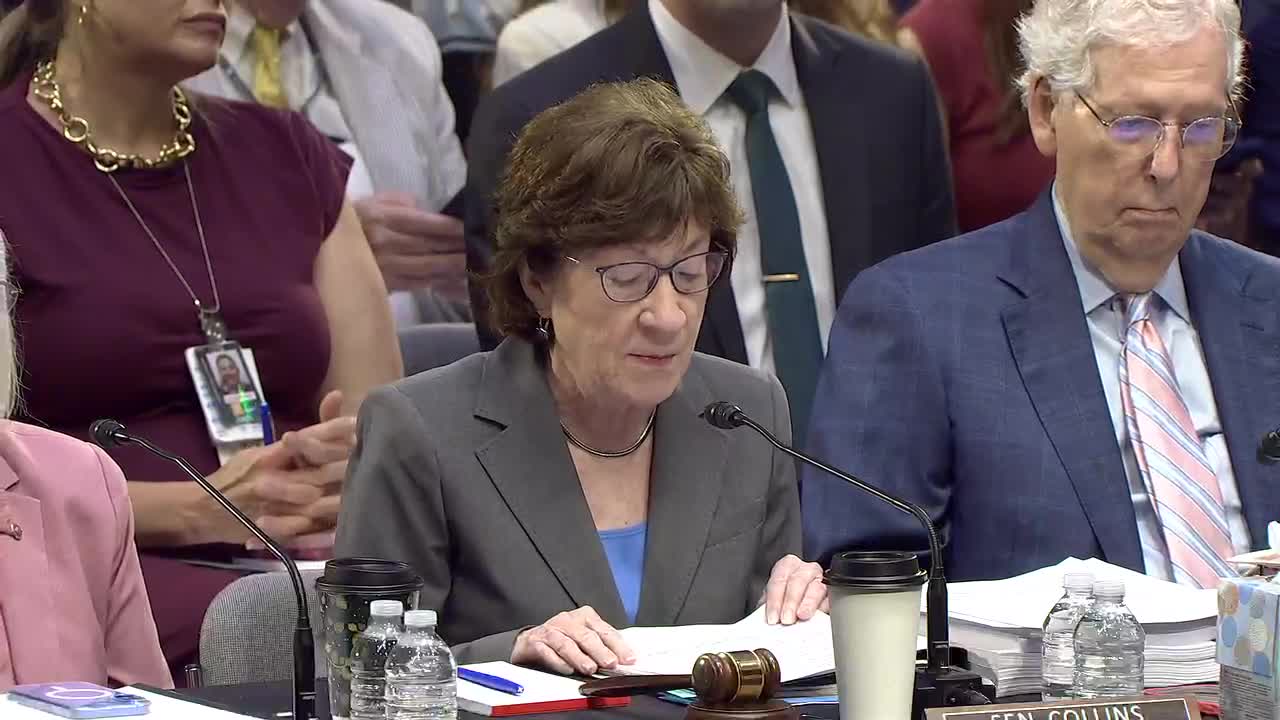Senate Committee Advances Bipartisan Defense and Labor Health Appropriations Bills
July 31, 2025 | Appropriations: Senate Committee, Standing Committees - House & Senate, Congressional Hearings Compilation
This article was created by AI summarizing key points discussed. AI makes mistakes, so for full details and context, please refer to the video of the full meeting. Please report any errors so we can fix them. Report an error »

In a pivotal meeting on July 31, 2025, the U.S. Senate Committee on Appropriations advanced two significant appropriations bills, focusing on defense and labor, health, and human services. The bills, which reflect a strong bipartisan effort, aim to secure essential funding for various programs, including the Low Income Home Energy Assistance Program and Job Corps.
Chairwoman Susan Collins and Ranking Member Tammy Baldwin highlighted the collaborative nature of the bills, noting that 95 senators submitted over 11,000 requests for consideration. This extensive input underscores the commitment to addressing the needs of constituents across the nation. Vice Chair Patty Murray emphasized the importance of these appropriations, stating they represent critical investments in defense, healthcare, education, and workforce training, which are vital for the nation's security and the well-being of American families.
Murray also pointed out that the bills reject many of the severe cuts proposed during the previous administration, particularly those that would have adversely affected medical research and education funding. She specifically mentioned the rejection of a 40% cut to the National Institutes of Health (NIH) budget, advocating for continued support in the fight against diseases like cancer and Alzheimer's.
The committee's actions reflect a commitment to maintaining bipartisan cooperation in funding essential services, despite ongoing challenges posed by the current administration's policies. The bills are seen as a crucial step in ensuring that vital programs remain funded and that lawmakers can effectively advocate for their constituents' needs.
As the committee moves forward, the focus will remain on ensuring transparency and accountability in the allocation of funds, with a clear message that Congress will not allow the dismantling of critical programs that support American families and communities. The successful advancement of these bills marks a significant moment in the ongoing legislative process, reinforcing the importance of bipartisan efforts in addressing the nation's pressing needs.
Chairwoman Susan Collins and Ranking Member Tammy Baldwin highlighted the collaborative nature of the bills, noting that 95 senators submitted over 11,000 requests for consideration. This extensive input underscores the commitment to addressing the needs of constituents across the nation. Vice Chair Patty Murray emphasized the importance of these appropriations, stating they represent critical investments in defense, healthcare, education, and workforce training, which are vital for the nation's security and the well-being of American families.
Murray also pointed out that the bills reject many of the severe cuts proposed during the previous administration, particularly those that would have adversely affected medical research and education funding. She specifically mentioned the rejection of a 40% cut to the National Institutes of Health (NIH) budget, advocating for continued support in the fight against diseases like cancer and Alzheimer's.
The committee's actions reflect a commitment to maintaining bipartisan cooperation in funding essential services, despite ongoing challenges posed by the current administration's policies. The bills are seen as a crucial step in ensuring that vital programs remain funded and that lawmakers can effectively advocate for their constituents' needs.
As the committee moves forward, the focus will remain on ensuring transparency and accountability in the allocation of funds, with a clear message that Congress will not allow the dismantling of critical programs that support American families and communities. The successful advancement of these bills marks a significant moment in the ongoing legislative process, reinforcing the importance of bipartisan efforts in addressing the nation's pressing needs.
View full meeting
This article is based on a recent meeting—watch the full video and explore the complete transcript for deeper insights into the discussion.
View full meeting